Music and the Skillful Listener

MUSIC, NATURE, PLACE
Denise Von Glahn and Sabine Feisst, series editors
AMERICAN WOMEN COMPOSE
THE NATURAL WORLD
DENISE VON GLAHN
INDIANA UNIVERSITY PRESS
Bloomington & Indianapolis
This book is a publication of
INDIANA UNIVERSITY PRESS
601 North Morton Street
Bloomington, Indiana 47404-3797 USA
iupress.indiana.edu
Telephone orders 800-842-6796
Fax orders 812-855-7931
2013 by Denise Von Glahn
Parts of the discussion and analysis of Ellen Taaffe Zwilichs Symphony No. 4, The Gardens first appeared in the authors book The Sounds of Place: Music and the American Cultural Landscape. Northeastern University Published by University Press of New England, Lebanon, NH. Reprinted with permission.
All rights reserved
No part of this book may be reproduced or utilized in any form or by any means, electronic or mechanical, including photocopying and recording, or by any information storage and retrieval system, without permission in writing from the publisher. The Association of American University Presses Resolution on Permissions constitutes the only exception to this prohibition.
 The paper used in this publication meets the minimum requirements of the American National Standard for Information Sciences Permanence of Paper for Printed Library Materials, ANSI Z39.48-1992.
The paper used in this publication meets the minimum requirements of the American National Standard for Information Sciences Permanence of Paper for Printed Library Materials, ANSI Z39.48-1992.
Manufactured in the
United States of America
Library of Congress
Cataloging-in-Publication Data
Von Glahn, Denise, [date]- author.
Music and the skillful listener : American women compose the natural world / Denise Von Glahn.
pages cm
Includes bibliographical references and index.
ISBN 978-0-253-00662-2 (cloth : alkaline paper) ISBN 978-0-253-00793-3 (ebook) 1. Women composers United States. 2. Music by women composers History and criticism. 3. Nature in music. I. Title.
ML390.V66 2013
780.92520973 dc23
2012033296
1 2 3 4 5 18 17 16 15 14 13
For my mother
CONTENTS
ACKNOWLEDGMENTS
Among the themes weaving together the women in this study, none is more fundamental than collaboration. And so it is with the book itself. Over years and miles I have benefited from the generous collaborative spirit of dozens of people, some close friends and colleagues, and others professionals Ive never met. If, as my skillful listeners conclude, we are all parts of a larger endeavor, Music and the Skillful Listener is most assuredly the product of an ecosystem of efforts. My thanks must go first to the composers whose music captured my imagination. Victoria Bond, Emily Doolittle, Libby Larsen, Pauline Oliveros, Joan Tower, and Ellen Zwilich invited me into their lives and helped me to understand the nuances of their relationships to nature. They have enlarged my world. I hope that readers will find their way to the pieces that I discuss so that they too can be challenged, transported, and changed.
Im grateful to administrators, faculty colleagues, and graduate students at the Florida State University, College of Music, for encouraging my work. No one questioned me when I proposed courses on music and place in the early 2000s, or offered a doctoral seminar titled Ecocriticism and Musicology in spring 2006. Everyone assumed my ideas had merit. I hope this book proves their trust to be well founded. Travel to archives was made possible by support from my areas Curtis Mayes Orpheus Fund in Musicology. Im indebted to Douglass Seaton, Frank Gunderson, Charles Brewer, and Michael Bakan for nurturing creativity. In 2009 the university awarded me financial assistance and time away from teaching duties through a grant from the Committee on Faculty Research Support (COFRS). The grant proved essential to conducting interviews, consulting research, and writing the first three chapters. Numerous other colleagues in the College of Music offered a collaborative hand. Sarah Hess Cohen and Sara Nodine, librarians in the Warren D. Allen Music Library, joined me in many a search for elusive materials. Marcia Porter, Alice-Ann Darrow, and Heidi Williams generously listened, sent me to sources, played with ideas, and cheered me on. Dean Don Gibson of the College of Music is a uniquely talented administrator; each day he creates anew an ideal environment to foster growth. This project would not have come to fruition without his personal support. Dean Gibsons door is always open. His commitment to his faculty is palpable. Each of us is certain we are his favorite. My colleagues and I will miss him when he retires as dean at the end of the 201213 academic year. Leigh Edwards, my colleague in the English Department, provided bibliographical ideas and a lunchtime sounding board. Her excitement about the potential of this project and her belief that I was the person to do it were crucial to its happening at all.
Ive been fortunate to work with exceptional students in classes, in seminars, and as my assistants; theyve contributed to this particular project in a variety of ways, some of which Im sure they are unaware. Many of them have graduated, but even so in a number of cases our conversations continue. While it is dangerous to name names and risk overlooking someone, Id rather make that mistake than to not try. With that caveat I want to thank Caitlin Brown, Toni Casamassina, Amy Dunning, Katherine Etheridge, Andrew Gades, Gonzalo Gallardo, Ashley Geer, Dennis Hutchison, Amy Keyser, Megan MacDonald, Charles Mueller, Crystal Peebles, Erin Scheffer, John Spilker, Stephanie Stallings, Dana Terres, Stephanie Thorne, Lyndsey Thornton, Steve Thursby, Catherine Williams, and Felicia Youngblood; Brianna Rhodes took on the Herculean task of creating the musical examples. Their questions, challenges, curiosity, and excitement inform everything I do.
Collaborators recognize no geographic boundaries, and many of mine live well beyond my university home. The very first images that appear in Music and the Skillful Listener come from Tina Gianquittos book Good Observers of Nature: American Women and the Scientific Study of the Natural World, 18201885. Her study was an inspiration for mine. Robin Rausch and Sarah Dorsey made my work on the MacDowell Colony and on Louise Talma possible. Im regularly emboldened by Sabine Feisst, who lives her commitment to the environment and is a scholars scholar. Susan Pickett responded to an inquiry from a total stranger and agreed to share her unpublished work on Marion Bauer with me. While I was visiting his university, Dereck Daschke engaged with me in a thought-provoking conversation regarding the many meanings of translation. Im still thinking about what we discussed. Since we met for the first time at a music and nature symposium in 2006, Aaron Allen has helped me nuance my ideas and sharpen my prose. He is a most skillful thinker. Kailan Rubinoff suggested that I might be interested in contacting a Canadian composer friend of hers named Emily Doolittle. None of us could have imagined that Emily would become the focus of my last chapter. Elizabeth Keathley challenged my assumptions regarding womens roles and womens places. In marathon phone conversations and brief meetings, Tammy Kernodle continues to gently steer me where I need to go. Larry Starr asks questions that no one else thinks of. In certain ways I will always be his student.


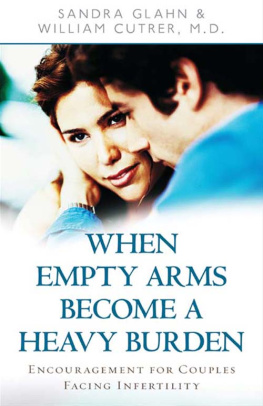

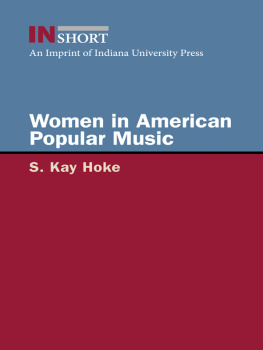
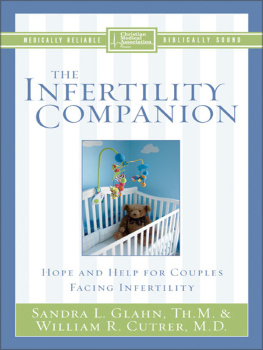
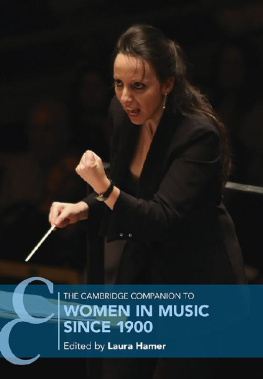
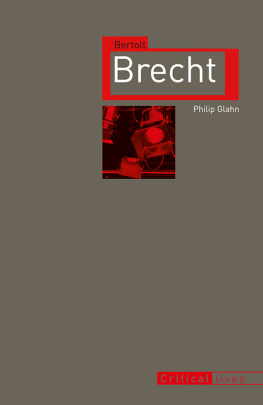
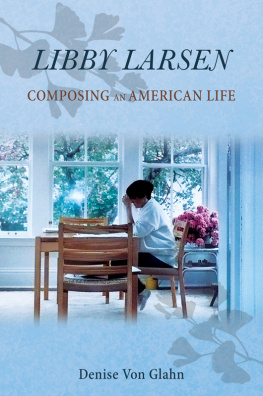


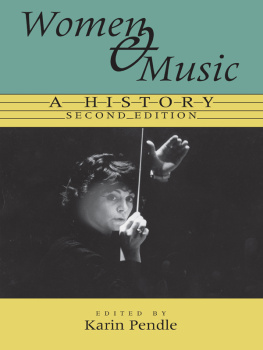
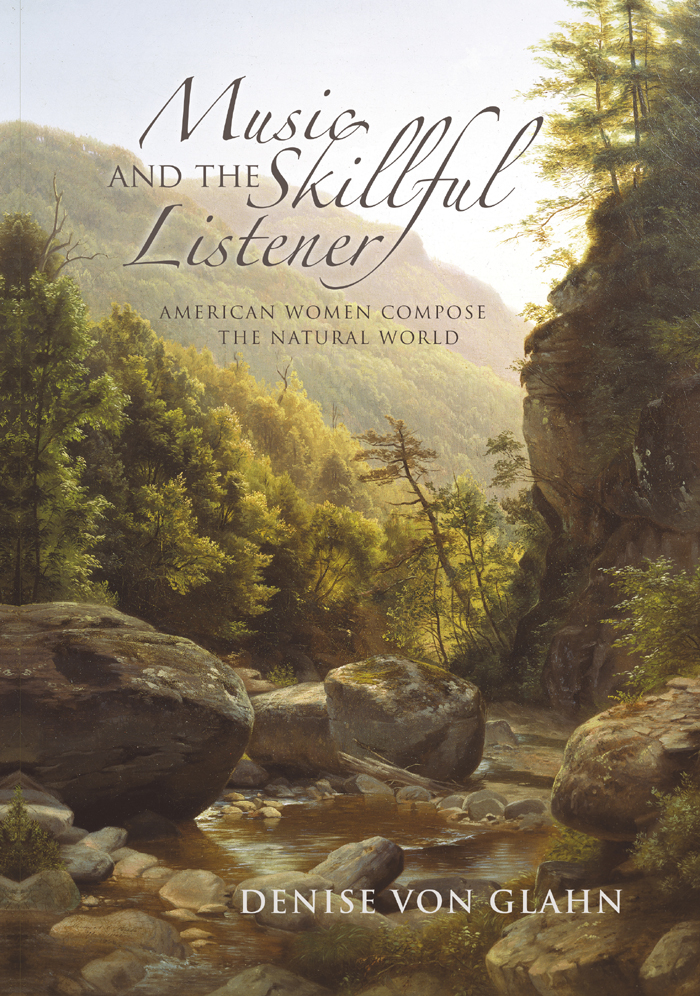

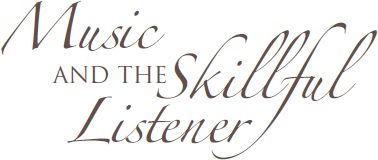
 The paper used in this publication meets the minimum requirements of the American National Standard for Information Sciences Permanence of Paper for Printed Library Materials, ANSI Z39.48-1992.
The paper used in this publication meets the minimum requirements of the American National Standard for Information Sciences Permanence of Paper for Printed Library Materials, ANSI Z39.48-1992.